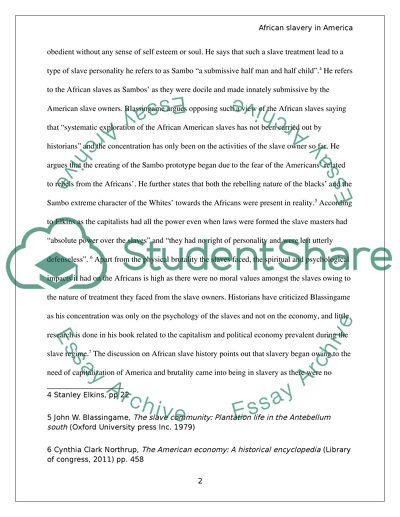Cite this document
(“African slavery in America:reduction of Africans to docile and Essay”, n.d.)
Retrieved from https://studentshare.org/history/1436519-african-slavery-in-americareduction-of-africans-to-docile-and-dependent-sambos
Retrieved from https://studentshare.org/history/1436519-african-slavery-in-americareduction-of-africans-to-docile-and-dependent-sambos
(African Slavery in America:Reduction of Africans to Docile and Essay)
https://studentshare.org/history/1436519-african-slavery-in-americareduction-of-africans-to-docile-and-dependent-sambos.
https://studentshare.org/history/1436519-african-slavery-in-americareduction-of-africans-to-docile-and-dependent-sambos.
“African Slavery in America:Reduction of Africans to Docile and Essay”, n.d. https://studentshare.org/history/1436519-african-slavery-in-americareduction-of-africans-to-docile-and-dependent-sambos.


